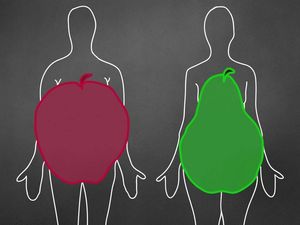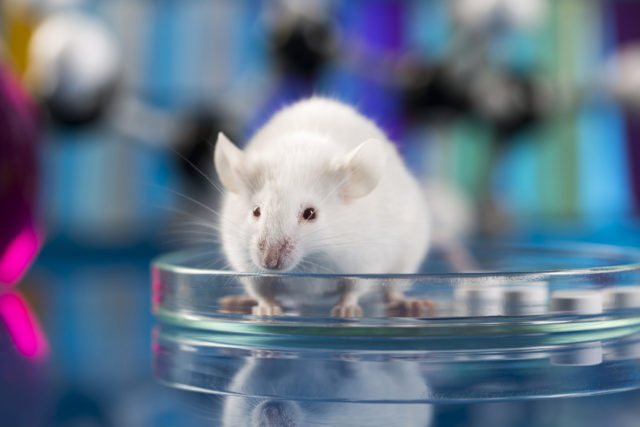Which body shape is healthier – pear or apple? Scientists have the answer…
It’s all down to how fat is deposited in the body.

It’s healthier to be a pear than an apple when it comes to body shape, research has shown.
A study on mice appears to demonstrate that those who gain weight around their hips (pear-shaped), are better protected against the diseases linked to obesity than those who accumulate fat around the abdomen (apple-shaped).
According to the team at the University of California, Riverside, women are more likely to be pear-shaped, while men generally tend to take on more of an apple shape.
This is because women deposit fat subcutaneously – right below the skin – while men tend to accumulate fat deeper, in the body’s visceral region close to the internal organs.

The findings suggest women are more protected than men, especially when it comes to neuroinflammation – microscopic swelling of the nerves in the brain triggered by the body’s immune system.
Neuroinflammation is the body’s way to protect itself by causing distressed cells to release SOS signals, but can be damaging if it persists for a long time.
Previous research has shown chronic neuroinflammation to be one of the most well-characterised features of obesity.
Dr Djurdjica Coss, an associate professor of biomedical sciences in the UCR School of Medicine, and the study leader, said: “While overweight, women are more protected than men where neuroinflammation is concerned.
“This could be an evolutionary protection for women, who need to experience more change in weight due to pregnancy.”
Experiments on mice showed that when fed a high-fat diet, only males experienced neuroinflammation.
In addition, the males showed low testosterone and reduced sperm count.

Dr Coss said: “We know that abdominal fat – that is, fat around visceral organs – gets more inflamed with a fat overburden.
“This fat then recruits immune cells from blood circulation that get activated.”
Researchers believe females are better protected against weight gain because of the ovarian oestrogen hormone, possibly combined with other factors that are not yet known.
Dr Coss says that while the findings are based on mouse studies, they are “likely to have applications in humans”.
She said: “Mice on high-fat diet develop metabolic syndrome – a constellation of pathologies that includes Type 2 diabetes and insulin insensitivity – similarly to obese humans.
“Obese men have lower testosterone levels, contributing to low libido, low energy and reduced muscle strength. We see this in mice, too; obese male mice showed nearly 50% decreases in testosterone and sperm number.
“Obese women have difficulty with their menstrual cycles. They don’t ovulate. Obese female mice show the same, contributing to decreased fertility.”
Obesity has also been associated with a decline in mental health and an increased rate of stroke.
According to Dr Coss, the next step in the research will be to examine how abdominal weight is linked to neuroinflammation.
The research is published in the journal Frontiers in Immunology.





